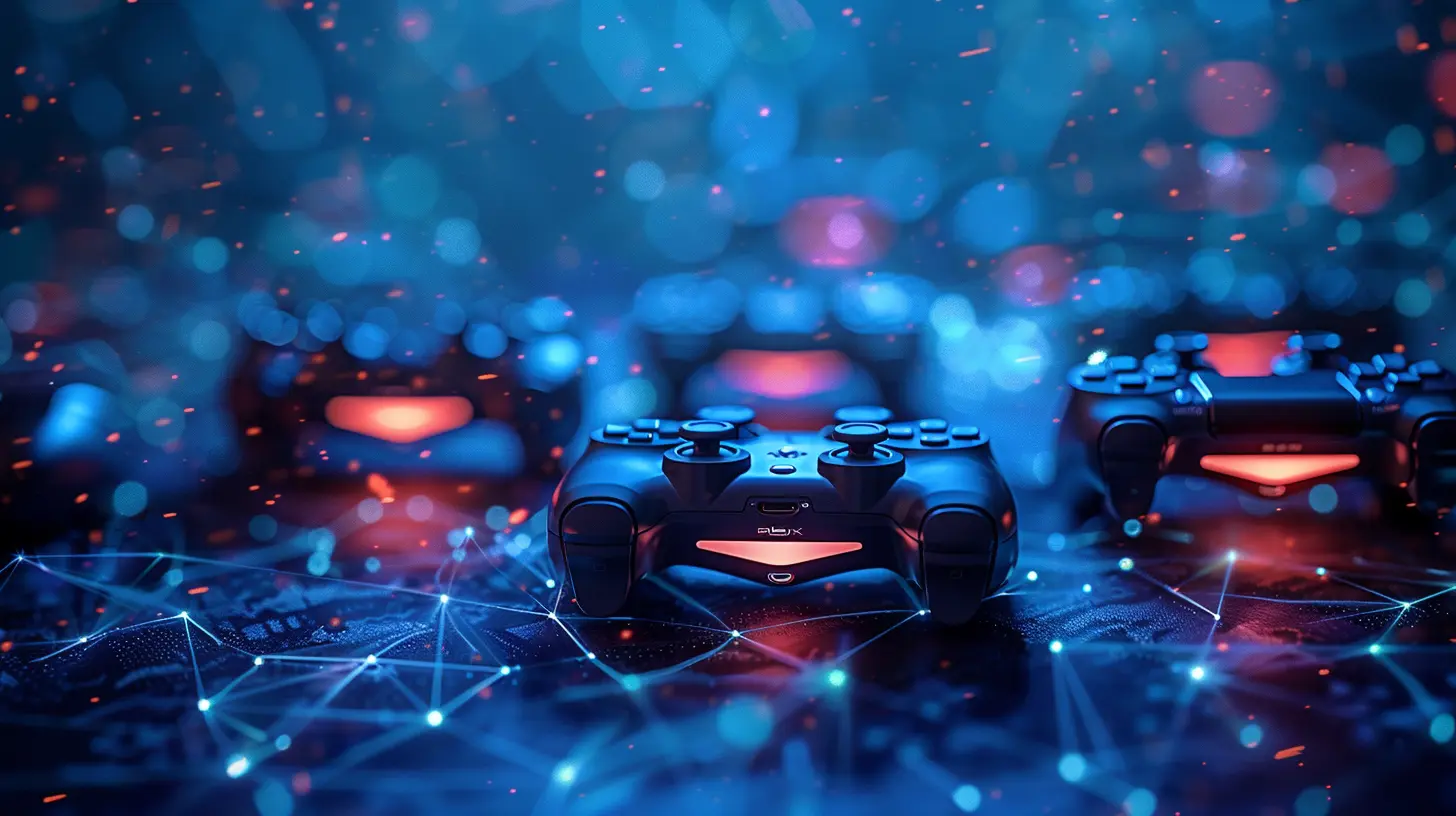The Importance of Latency in Mobile Gaming
8 May 2025
Mobile gaming has exploded in popularity over the past decade, and with high-speed internet and powerful smartphones, gamers expect smooth, lag-free gameplay. But there’s one invisible villain that can ruin your gaming experience—latency.
Latency might not be the first thing that comes to mind when you're frustrated with a game, but it's often the culprit behind delayed actions, stuttering graphics, and missed opportunities. Whether you're playing fast-paced shooters, strategy games, or even mobile esports, latency can be the deciding factor between victory and defeat.
But what exactly is latency? Why does it matter so much? And how can you reduce it for a better gaming experience? Let’s break it all down in simple terms. 
What Is Latency in Gaming?
Latency, also called "ping," refers to the delay between an action you take on your device and the response from the game server. In other words, it's the time it takes for your tap, swipe, or button press to be registered in-game.Think of latency like a conversation over a slow phone connection. If there's a delay between when one person speaks and the other hears it, the conversation feels unnatural and frustrating. The same thing happens in gaming—when latency is high, your actions feel delayed, and gameplay suffers.
Latency is measured in milliseconds (ms). The lower the latency, the better the experience. 
Why Latency Matters in Mobile Gaming
A few milliseconds might not seem like a big deal in everyday life, but in mobile gaming, they can be the difference between landing a perfect shot or missing entirely. Here’s why latency is crucial:1. Smooth and Responsive Gameplay
No one likes a sluggish game. If latency is too high, you’ll feel a noticeable lag between when you tap the screen and when the game responds. This makes fast reactions impossible and ruins the immersion.2. Competitive Advantage
In multiplayer games like PUBG Mobile, Call of Duty Mobile, or Mobile Legends, even a fraction of a second can decide who wins a duel. If your ping is high, your opponent sees the action before you do, leaving you at a serious disadvantage.3. Reduced Stuttering and Lag Spikes
High latency doesn’t just delay actions; it can also cause lag spikes—those sudden freezes or stuttering movements. Imagine driving in a racing game, and your car suddenly jumps ahead or freezes for a second. Annoying, right?4. Better Aim and Precision
In FPS (First-Person Shooter) games, precision is everything. If you fire a shot but latency causes a delay, you might miss, even though you aimed perfectly. Low latency ensures your movements and actions happen exactly when you intend them to.5. Enjoyable Multiplayer Experience
Nobody likes playing with an opponent who constantly lags or teleports around due to high latency. A smooth, stable connection makes multiplayer gaming fair and fun for everyone.
Factors That Affect Latency
Several things influence latency in mobile gaming. Understanding these factors can help you reduce lag and improve your gameplay.1. Internet Connection
Your network type (Wi-Fi, 4G, 5G) plays a huge role in determining latency. A weak or slow connection causes delays in data transmission, increasing latency.2. Server Distance
The closer you are to the game server, the lower your latency. If you're playing on a server that's located on another continent, data has to travel a longer distance, increasing delay.3. Network Congestion
Too many devices using the same internet connection can slow things down, increasing latency. If you’re gaming while your family is streaming movies and downloading files, expect lag.4. Device Performance
Older phones or devices with low processing power might struggle to keep up with real-time gaming, adding to latency issues. A laggy phone can make latency feel even worse.5. Background Apps
Apps running in the background—especially ones using the internet—can eat up bandwidth and increase latency. Closing unnecessary apps can make a noticeable difference.
How to Reduce Latency in Mobile Gaming
If you're struggling with high latency, don’t worry. There are several things you can do to improve your mobile gaming experience:1. Use a Stable Internet Connection
Wi-Fi is usually better than mobile data, but make sure you're close to the router. If possible, switch to 5GHz Wi-Fi instead of 2.4GHz for faster speeds and lower interference.2. Switch to a Gaming-Friendly Network
If you're using mobile data, 5G or high-speed 4G (LTE) will give you lower latency than older networks like 3G. Some mobile carriers even offer gaming-optimized plans to reduce ping.3. Choose the Right Server
Most games let you pick a server based on your region. Always select the server closest to your location to keep latency low.4. Close Background Apps
Apps like social media, streaming services, and downloads running in the background can slow down your internet. Close them before launching a game.5. Use a Gaming VPN (With Caution)
Sometimes, gaming VPNs can help by routing traffic through faster servers. However, if the VPN adds more distance to the server, it could make things worse. Test different options to see what works best for you.6. Update Your Game and Device
Developers constantly release updates to optimize gameplay performance. Keeping your game and phone updated ensures better stability and lower latency.7. Optimize In-Game Settings
Most mobile games let you tweak settings like graphics and frame rates. Lowering these settings can reduce the load on your phone and improve responsiveness.8. Limit Other Devices on Your Network
If too many people are using the Wi-Fi at once, your connection slows down. Try playing at times when network traffic is lower or ask others to pause their heavy usage.The Future of Low-Latency Gaming
The good news? Latency is improving as technology advances. The arrival of 5G, edge computing, and faster servers means mobile gamers will continue to see lower latency and smoother gameplay. Esports on mobile is growing, and developers are investing heavily in reducing lag to provide a world-class gaming experience.Cloud gaming services like Xbox Cloud Gaming and NVIDIA GeForce Now also promise near-instant responsiveness, relying on powerful servers and high-speed internet. While they still have some latency, improvements in network infrastructure will only make things better.
Final Thoughts
Latency may not be something you think about daily, but it plays a massive role in mobile gaming. Whether you're a casual gamer or a competitive player, reducing latency can significantly enhance your experience. By optimizing your internet connection, choosing the right settings, and staying updated with the latest technology, you can enjoy smoother, lag-free gaming.So, the next time you miss a shot or experience frustrating lag, check your latency—you might just find the real reason behind your in-game struggles.
all images in this post were generated using AI tools
Category:
Mobile GamingAuthor:

Jerry Graham
Discussion
rate this article
6 comments
Wren Ramirez
Latency is the heartbeat of mobile gaming, shaping every player's experience. In a world driven by split-second decisions, optimizing latency not only enhances gameplay but also fosters a vibrant, competitive community. Embrace innovation and make every millisecond count—let’s level up mobile gaming together! The future is fast, and it’s here!
May 17, 2025 at 3:23 AM

Jerry Graham
Thank you for highlighting the critical role of latency in mobile gaming! Optimizing it truly transforms the player experience and strengthens our community. Let’s continue to embrace innovation for a faster, more immersive future!
Ardent Maddox
Great insights! Understanding latency truly enhances the mobile gaming experience.
May 16, 2025 at 3:09 AM

Jerry Graham
Thank you! I'm glad you found the insights valuable. Latency plays a crucial role in shaping the gaming experience.
Katherine Fry
Great insights! Understanding latency truly enhances the mobile gaming experience.
May 15, 2025 at 8:47 PM

Jerry Graham
Thank you! I'm glad you found the insights valuable. Latency is indeed crucial for an immersive gaming experience!
Kayla McCartney
This article beautifully underscores how latency impacts the mobile gaming experience. As a gamer, I truly appreciate the insights shared here—every millisecond counts in delivering joy!
May 14, 2025 at 11:26 AM

Jerry Graham
Thank you for your feedback! I'm glad you found the insights valuable—every millisecond really does make a difference in gaming!
Drake Ramirez
Latency in mobile gaming is like trying to catch a bus that leaves 5 minutes early—frustrating and totally unfair! Let's face it, nobody wants to lose a battle because their game decided to take a coffee break. Speed it up, tech gods!
May 13, 2025 at 3:02 AM

Jerry Graham
Absolutely! Latency can make or break the gaming experience, and it’s crucial for developers to prioritize speed to keep players engaged and competitive.
Xavier Mercado
Latency is crucial in mobile gaming, as it directly impacts user experience and competitiveness. Minimizing latency not only enhances responsiveness and immersion but also fosters a more satisfying interaction, ultimately influencing player retention and game success.
May 9, 2025 at 12:51 PM

Jerry Graham
Thank you for your insightful comment! You're absolutely right—minimizing latency is key to enhancing the gaming experience and retaining players.
MORE POSTS

Smart TVs for Small Spaces: Best Options for Apartments and Dorms

The Future of Smart Homes: Trends to Watch

Home Automation for Elderly Care: Enhancing Safety and Comfort

The Best Smart TVs for Streaming Documentaries and Educational Content

Smart TV Display Technologies: Breaking Down the Differences